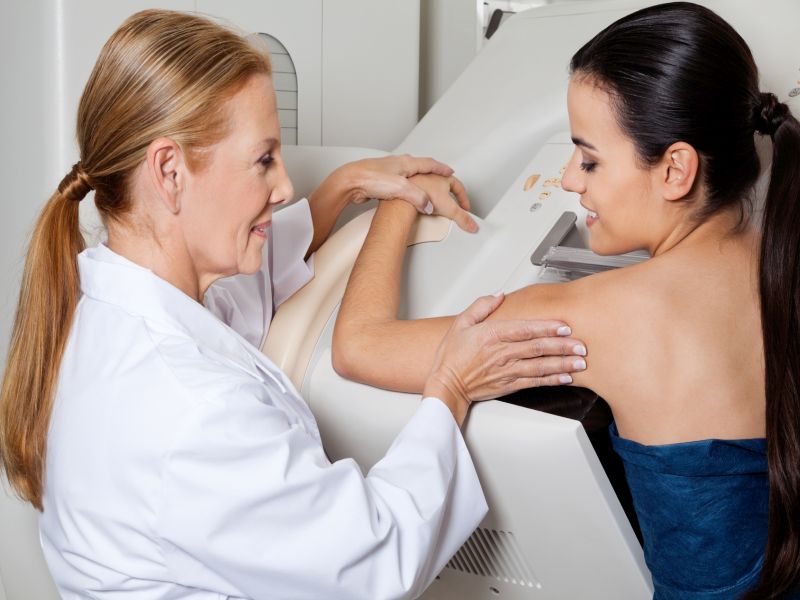 By Amy Norton
By Amy Norton
HealthDay Reporter
MONDAY, July 6, 2020 (HealthDay News)
Medicaid expansion under Obamacare may have decreased the number of poorer Americans diagnosed with advanced cancer, a new study suggests.
The study focused on Ohio, which was among the first states to expand its Medicaid program under the Affordable Care Act (ACA) in 2014.
The researchers found that in the three years after expansion, low-income residents saw a 15% drop in their odds of being diagnosed with metastatic cancer.
That refers to cancers that have spread from the original site to other parts of the body. While metastatic cancer can be treated, it is most often incurable, according to the U.S. National Cancer Institute.
Medicaid is the publicly funded insurance program for the poor. The new findings suggest that its expansion helped prevent some of those late diagnoses.
And it’s “quite likely” that better access to cancer screenings was one reason, said senior researcher Dr. Johnie Rose, of Case Western Reserve University School of Medicine in Cleveland.
“There also might have been a ‘hmm’ factor,” he said. That is, if more people were able to see a primary care doctor, that might have caught some red-flag symptoms that led to timelier cancer diagnoses.
Starting in 2014, the ACA allowed U.S. states to expand their Medicaid programs, making more poor residents eligible for coverage. It’s known that those expanded programs reduced the ranks of the uninsured — and, at least in some cases, improved access to health care.
More recently, studies have been linking expansion to clear health benefits — including declines in deaths from heart disease, stroke and opioid overdose.
The new study, published online July 6 in the journal Cancer, points to another benefit.
“I think for policymakers and for voters, this shows there’s a concrete, demonstrable, life-saving benefit from expanding access to care,” said Rose, an assistant professor at the Case Western Reserve Center for Community Health Integration.
For the study, his team analyzed information on nearly 12,800 Ohio residents, aged 30 to 64, who were diagnosed with breast, cervical, lung or colon cancer between 2011 and 2016. All either had Medicaid or were uninsured.
On average, the study found, people diagnosed after Medicaid expansion were 15% less likely to be diagnosed with metastatic cancer, versus those diagnosed before.
That does not prove Medicaid expansion directly led to the reduction. But, Rose said, there was no similar decrease in metastatic cancer among people who remained uninsured.
And to create a “control” group, the researchers did a separate analysis of privately insured people living in higher-income Ohio communities. Again, there was no change in the odds of being diagnosed with metastatic cancer after 2014.
A decline of 15% might not sound large. But in this context, Rose said, it is.
“Bringing it down that much in three years is really remarkable,” he said.
When it comes to catching cancer at earlier stages, “the gaps between the rich and the poor have been so stubborn for so long,” Rose said.
“This is a rare bit of progress,” he said.
It is a “major finding,” agreed Dr. Hala Borno, an oncologist and assistant clinical professor at the University of California, San Francisco.
Borno, who wrote an editorial published with the study, said the results are “compelling.” But she also pointed out that access to Medicaid — or health insurance in general — does not guarantee that people can afford needed care.
Health insurance, including some states’ Medicaid programs, can come with hefty “cost-sharing” — such as monthly premiums, deductibles and co-pays.
According to Borno, Ohio is one of only 21 states where Medicaid does not charge monthly premiums or enrollment fees. She said the current findings are relevant to those states where cost-sharing is not an issue, but that may not be true in other states.
Besides making sure all Americans have access to health care, Borno said, it’s critical to ensure they have comprehensive coverage.
“Coverage for all is when people can actually obtain the health services they need with necessary financial risk protection,” she said.
As of July 1, 38 states (including Washington, D.C.) have expanded their Medicaid programs under the ACA, according to the Kaiser Family Foundation.

Copyright © 2020 HealthDay. All rights reserved.
SLIDESHOW
Protect Your Health in a Rough Economy: Pictures
See Slideshow
References
SOURCES: Johnie Rose, MD, PhD, assistant professor, Center for Community Health Integration, Case Western Reserve University School of Medicine, Cleveland, Ohio; Hala Borno, MD, assistant clinical professor, genitourinary oncology program, University of California, San Francisco; Cancer, July 6, 2020, online







Leave a Reply